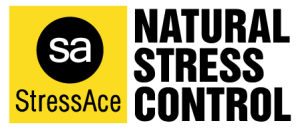What is stress?
Psychological stress is, quite simply, a defensive reaction. When we feel defensive our brain automatically tells our body to produce adrenaline to give us extra energy and physical strength to fight or flee. This is called the fight or flight or freeze stress reaction and this defense reaction was researched by neuroscientist Walter Cannon in the 1960’s.
Every time we feel defensive in any way our body produces the automatic fight flight freeze stress reaction. What can make us defensive? The answer is, just about anything under the sun, as this is a very personal thing. You may say that when our coping skills don’t match up to the demands of our environment we will probably feel threatened or stressed.
We may feel annoyed and frustrated because things don’t go according to plan, there are setbacks or we are not getting the best outcomes. Everyday events such as running late for a meeting; dealing with unreliable dishonest or rude people; a busy schedule; or more serious frustrations such as not getting a big insurance payout; or an extreme danger, such as being on a plane with engine problems, can all lead to stress.
Intelligent stress
The positive side of stress is that it immediately raises our energy levels and motivates us. But at the same time stress unfortunately will also very quickly shut down the rational thinking centres of our brain and switch on our reflex brain centres instead. The hippocampus, a rational thought centre in the brain, must control our stress levels, but it shuts down very quickly under too much stress. This makes us too emotional and reactive and less logical and reasonable.
Once the amygdala, our reflex defense centre, is in charge, we are on a roller coaster of stress and it is almost impossible to reverse the situation. This can happen even after just one day of stress, or one stressful incident. Unfortunately this happens even in the mildest forms of daily stress. When the balance between the hippocampus and the amygdala reflex centre is out of kilter, it can lead to anxiety and depression, which in turn suppresses our immune system and this makes us more prone to ill health. StressAce helps reset the balance between the rational and reflex brain centres.
Holidays, meditation and exercise are not the answer
Yes of course you can go on holidays, meditate, exercise and there are all manner of panaceas, as well as alcohol and drugs you can take, but these remedies do not change your baseline stress. Once you are back in your routine and dealing with the same issues, the stress will still be there, waiting for you.
Stress is quickly conditioned or ‘burnt into’ the neural circuits of the brain, where it remains trapped and reactivated very easily by even minor new stressors. As we mature we simply accumulate more stress. Stress continues to build and build on itself. This is why it is so important to release stress with a technique like StressAce. It resets your baseline stress levels at a better level so you don’t stay trapped in stress.
Stress indicators
Often people only realise that they have become stressed when they start to consciously notice the effects of stress, such as tiredness or irritability, a sudden neck pain or body tension, being more forgetful, feeling unmotivated, gloomy, or a general sense of dissatisfaction with their life. The reason for this is that stress occurs first and foremost on an unconscious automatic level in our body, frequently without involving any conscious thought at all. This makes it very tricky to handle and why a technique like StressAce is so valuable as it releases this hidden stress and its negative effects on your performance.
When stress is mild we feel unhappy or a bit pessimistic. At its most severe, stress can make us feel suicidal. Whereas the edginess, tension and sense of dissatisfaction of mild stress is definitely a known experience for most people, the morbidity of severe stress is, fortunately, rarer.
We all know that some level of stress is good for us, and that it is a completely natural and necessary part of life. Some of us enjoy and thrive on stress and seek out challenges. If our stress levels get too high then our abilities for things like study can be significantly compromised. Further along the scale, stress can lead to anxiety and left unchecked, can turn into depression.
Irrespective of how we relate to stress or how we handle it, StressAce is helpful to lower hidden stress that affects our performance.
The negative effects of stress can be best corrected with a technique like StressAce, which deletes old stress patterns and help us better control new stress. The good news is it’s easy, immediate and pretty effortless.
Five facts about stress:
- Stressors – demands that we are under
- Physical- too much stress drains our energy
- Cognitive – stress impairs clarity of thought
- Emotional – stress makes us too emotional
- Behaviour – too much stress can make us impulsive, disorganised unmotivated or slow
Four important things to know about stress:
- We all carry too much stress whether we know it or not. StressAce can remove hidden stress.
- Stress is a perception and not a fact: the important thing about stress is that it is a feeling we create in our bodies and minds, it is not caused by an external event or fact of life. We have to perceive a danger or threat to feel stress. StressAce removes the tendency we have to think in a stressful way.
- Stress is designed to help us survive and we are all issued with a nervous system that can produce a stress reaction, because we need to have the tools to defend ourselves. This means stress is good, but we must learn to use it positively and control it. StressAce helps us get this control.
- The opposite of stress is when we feel comfortable, satisfied, happy and relaxed.
This means that your level of happiness, and relaxedness is a good barometer to measure your stress level. You are coping well with stress if you can solve stressful problems quickly.
Irrespective of how well you handle stress, you can always improve on your stress intelligence and handle it even better with StressAce.





